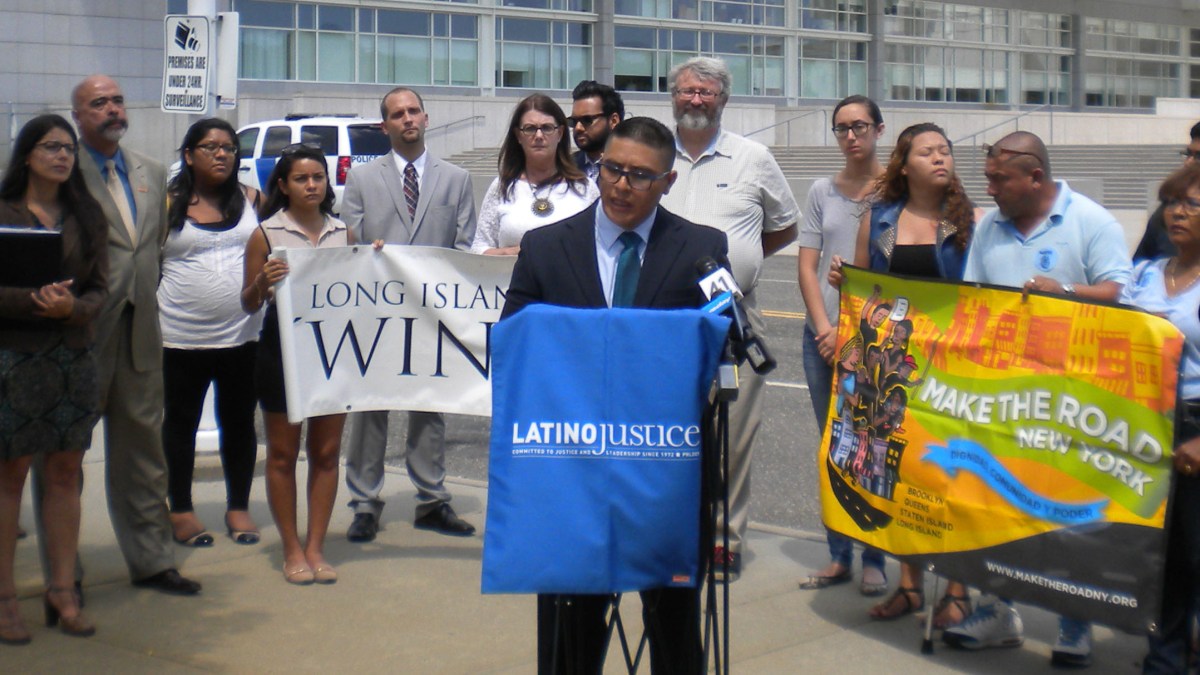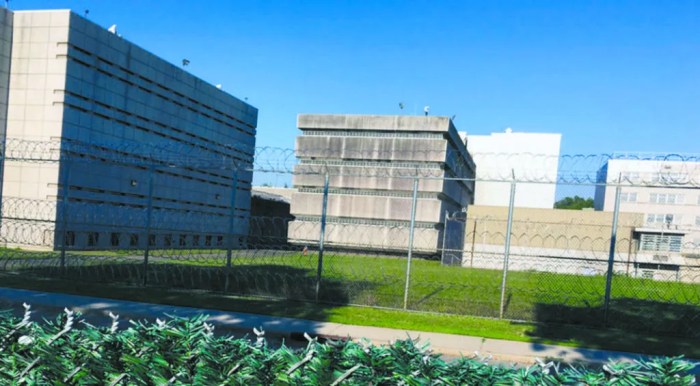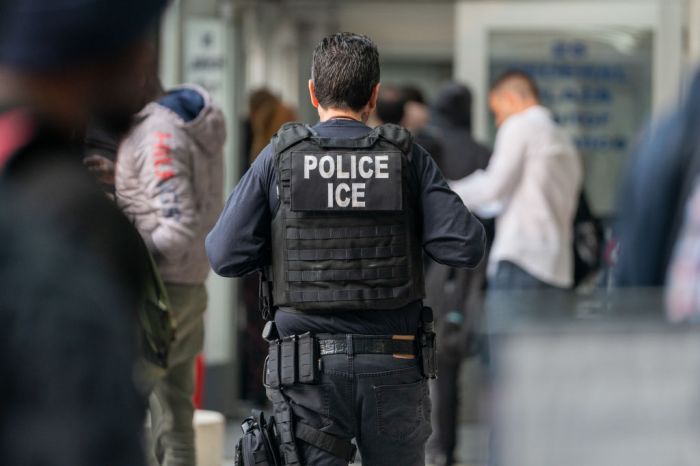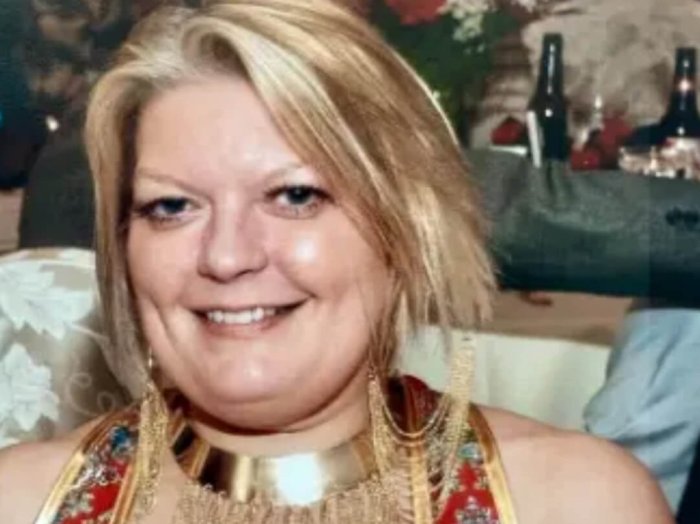Jose Fermin Sanchez, 30, was found dead of internal bleeding in a litter-strewn wooded lot off William Floyd Parkway a block from his last known address in Shirley on Oct. 6, 2010.
Suffolk County police have released few other details on the case since a group of people walking through the woods made that discovery, other to say at the time that they were “investigating the circumstances surrounding his death.” This week, a coalition of immigrant and civil rights advocacy groups called on federal authorities to take over the investigation—a case they suspect is a bias crime. In response, police vigorously defended their probe, which they maintain is open and actively continuing.
“We are losing confidence that the local government here can actually bring justice to the Latino residents of Suffolk County,” Juan Cartagena, president of LatinoJustice, a Manhattan-based nonprofit advocacy group, told reporters Wednesday outside Central Islip federal court. “Latinos who live in this county…should not feel that perhaps the race of the victim in a crime investigation somehow dictates how much energy is being invested by the Suffolk County police to actually find the criminals.”
The group also said that the lack of an arrest in the case is a failure of a recently concluded U.S. Department of Justice (DOJ) investigation into Suffolk police handling of hate crimes after a spate of such cases on eastern Long Island. That probe came after the county’s most high-profile hate crime, when group of teenagers killed Ecuadorean immigrant Marcelo Lucero in Patchogue in 2008. Sanchez died in the same town that two men attacked a pair of day laborers in 2000—the first case that gave Suffolk notoriety for bias.
Police bristled at the assertion that they prioritize investigations based on ethnicity of the victim, but did not respond to the advocates’ claims that hate was a motivator in the Sanchez case.
“While the department would like nothing more than to solve cases swiftly to give victims and their families a sense of closure and justice, certain cases take longer to solve,” the department said in a statement Wednesday that for the first time publicly described Sanchez’ death as a homicide. “That in no way means that it is any less important than other cases we are investigating.”
The department pointed to the recent arrest of a suspect accused of killing two women two decades ago as proof that Suffolk Homicide Squad detectives don’t give up until an arrest is made. But, investigators otherwise remained tight-lipped about the Sanchez murder.
“It would be inappropriate to release evidentiary details and/or the steps taken to solve this homicide,” police said. “We can assure the public that this case is being thoroughly investigated.”
A spokesman for the U.S. Attorney for the Eastern District of New York, who advocates called on to take over the investigation, declined to comment.
“There’s no evidence of any personal motive here or any economic motive,” said Foster Maer, an attorney for LatinoJustice, which represents the victims. “What does that leave you with this type of brutal crime? A hate crime. That’s the suggestion that this evidence makes and yet the Suffolk County police refuse to classify this as a hate crime.”
Advocates also accused Suffolk prosecutors of blocking them from receiving a copy of Sanchez’ autopsy report. Robert Clifford, a spokesman for District Attorney Tom Spota, did not respond to a request for comment.
A second man, Antonio Tum, was also assaulted in the Sanchez case. Police said that the assault is also still under investigation. Maer said that Tum had up to 30 pieces of wood surgically removed after the attack and is now disabled
Homicide Squad detectives ask anyone with information on the case to call them at 631-852-6394 or anonymously to Crime Stoppers at 1-800-220-TIPS. All calls will be kept confidential.



































